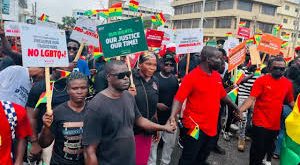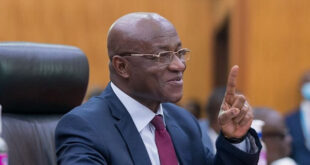The Center of Posterity Interest Organization (COPIO), has urged media houses in Ghana to refrain from amplifying political insults, citing concerns over the potential impact on national cohesion and the governance process.
The Executive Director of COPIO, Mr. Mustapha Maison Yeboah, in a reported sighted by Elvisanokyenews.com revealed that, most of the media houses that are found of amplifying political insults on their platforms focuses only on revenue generation putting aside the interest of the nation, a practice he said results in the increase in disrespectful comments by political figures and their supporters.
The reports indicates that, talk shows as well as political debates are the common mediums in the Ghana Landscape that such practices are usually practiced.
“The media often serves as a platform for political leaders to voice their opinions. In some cases,
this platform is used to disseminate insults and inflammatory rhetoric to a broader audience.
According to a study on media influence in West African politics, Ghanaian media outlets tend to
magnify political insults, especially during election seasons when competition is most intense. Talk
shows and political debates are common mediums through which these insults are publicized. The
sensational coverage of controversial statements by political figures increases their visibility,
leading to increased polarization.
“Some media outlets are driven by profit motives and often focus on sensational content to attract
larger audiences, including the use of politically charged language and insults (Boateng, 2018).
Sensationalizing political conflicts and insults often increases viewership and drives advertising
revenue. This focus on provocation is seen to deepen the culture of political insults, where leaders
and supporters resort to derogatory comments in a bid to gain media attention.”
The Center of Posterity Interest Organization which aims to promote peaceful and inclusive societies for sustainable development, while providing access to justice for all and build effective, accountable and inclusive institutions at all levels, believes that media outlets play a crucial role in shaping public opinion and fostering a healthy political discourse.
“The media can play a vital role in educating the public about the harmful effects of political insults
on social cohesion and national development. Through educational programs, editorials, and
expert opinions, the media can create awareness of the dangers associated with political intolerance
and insults. Studies have shown that public awareness campaigns led by the media can successfully
shift public attitudes towards more civil political engagement”
However, by excessively focusing on political insults and inflammatory rhetoric, COPIO believes media houses risk worsening divisions and creating an adversarial political culture that undermines the stability of the nation.
The report further reveals that, media regulatory bodies in the country have so far been inconsistent in controlling the spread of offensive speeches by media outlets. COPIO in their report urged these bodies to strengthening their role in applying ethical standards in the fight against defamatory speeches.
“Media regulatory bodies such as the National Media Commission (NMC) and the Ghana
Journalists Association (GJA) have attempted to curb the spread of defamatory speech in the
media. Regulatory enforcement, however, has been inconsistent, leading to varying levels of
professionalism and ethical reporting across media outlets. Strengthening the role of these bodies
in enforcing ethical standards is critical in curbing the culture of political insults.”
According to the COPIO, political insults and personal attacks not only harm the reputation of political figures but also contribute to a toxic political environment that can negatively impact the governance process and therefore urges media houses in Ghana to promote civil dialogue and hold politicians accountable for their actions and inactions while contributing to national unity.
“The media plays a central role in the politics of insults in Ghana, either exacerbating the issue
through sensationalism and partisanship or helping to foster a culture of responsible discourse
through issue-based journalism and public education.
“While some media outlets amplify political
insults for profit or due to partisan allegiances, there is a significant opportunity for the media to
promote civil dialogue, hold politicians accountable, and contribute to national unity. By adhering
to higher journalistic standards and through stronger regulatory oversight, the media can be a
powerful force in reducing the politics of insults in Ghana.”
Below is the full report
Source: Elvisanokyenews.com
 ElvisAnokyeNews.com Latest News, Politics, Health, Education & More
ElvisAnokyeNews.com Latest News, Politics, Health, Education & More




